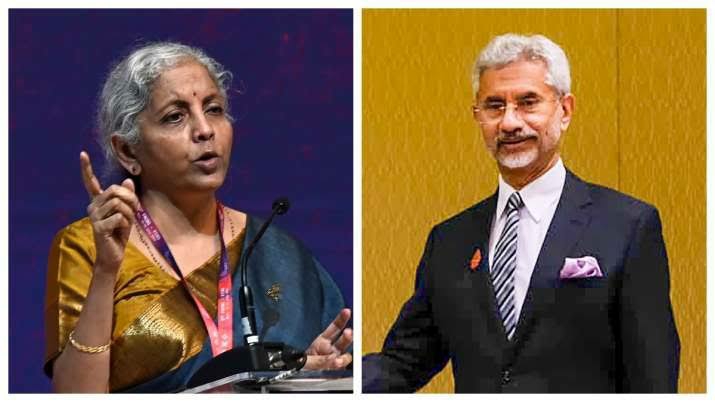New Delhi: The Centre has convened an all-party meeting on Tuesday to discuss the ongoing crisis in Sri Lanka.
Finance Minister Nirmala Sitharaman and External Affairs Minister S Jaishankar will brief floor leaders of all political parties in both the Houses of Parliament at the meeting, Parliamentary Affairs Minister Pralhad Joshi said at an all-‘party meeting held here on Sunday.
During a meeting of parties convened on Sunday ahead of the Monsoon Session of Parliament, Tamil Nadu-based DMK and AIADMK demanded India intervene in the neighbouring country which is facing a debilitating economic crisis.
India has emerged as the top lender to Sri Lanka, extending USD 376.9 million worth credit compared to USD 67.9 million by China in the first four months of this year to rescue the island nation from the unprecedented political crisis and economic turmoil.
Loans from India with USD 376.9 million were the highest foreign financing disbursements during the period of January 1 to April 30, 2022, according to Sri Lanka’s Finance Ministry.
After India, Asian Development Bank (ADB) came in as the second largest lender with USD 359.6 million being disbursed in the first four months, followed by the World Bank with USD 67.3 million.
The total foreign financing disbursements made during the period amounted to USD 968.8 million, of which, USD 968.1 million was disbursed as loans while USD 0.7 million was disbursed by way of grants.
India has been the principal source of foreign assistance to Sri Lanka this year.
Sri Lanka is facing an economic and political crisis with inflation and severe shortage of fuel and other essential supplies. Gotabaya Rajapaksa, 73, had gone into hiding after protesters stormed his residence on July 9 and his resignation was finally accepted by the Parliament Speaker. The 225-member Parliament will elect the new president by a vote on July 20.
Ranil Wickramasinghe who had announced his resignation as Prime Minister was sworn in as president on a temporary basis on Friday.
The oil supply shortage has forced schools and government offices to close until further notice. Reduced domestic agricultural production, a lack of foreign exchange reserves, and local currency depreciation have fuelled the shortages.
The economic crisis will push families into hunger and poverty – some for the first time – adding to the half a million people who the World Bank estimates have fallen below the poverty line because of the pandemic.



